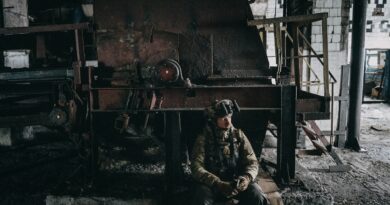France needs ‘order, order, order,’ Macron says in first interview since riots
Macron, in an interview broadcast Monday from the French territory of New Caledonia deep in the South Pacific, said he has spent the time since listening. His conclusion? The country needs “order, order, order.”
The interview comes at the end of a 100-day deadline Macron had set himself to appease and unite the country following weeks of protests sparked by his move to raise the retirement age from 62 to 64.
It is a sensitive time for the French president. Over a year into his second and last term, he is facing domestic head winds. His government lost its parliamentary majority and has been unable to form a new one. The retirement-age protests had barely ended when the killing of Nahel sparked new unrest.
In the interview, Macron sought to focus on what his government has done right in that 100-day period: Plans to promote a green transition, double the military’s budget and conserve water for the future are moving forward, he said, and his government has “been effective” even without a majority in Parliament.
But, he also acknowledged, there have been good days and bad days. Macron reshuffled his cabinet on Thursday, and with another controversy over police violence brewing in the south of the country, the outlook for the next 100 days appears more uncertain.
The protests over the police killing of Nahel lasted five nights in late June and early July. The police officer who fired the shot was quickly detained and charged with voluntary homicide. But this failed to quell the anger of the protesters, which was fueled by what many viewed as the unequal treatment of people of color by French law enforcement.
Amid allegations that some police officers used disproportionate force in responding to protesters, the U.N. Human Rights Office called on French authorities “to ensure use of force by police to address violent elements in demonstrations always respects the principles of legality, necessity, proportionality, non-discrimination, precaution and accountability.”
French Interior Minister Gérald Darmanin said the bodies that investigate misconduct in the police and the gendarmerie had received 10 referrals related to the protests. The government said hundreds of police officers were also injured at the time.
Macron in his interview defended the police response, saying too many of the rioters who were arrested were young people with no prior criminal record, and he urged parents to exercise more control over their children.
“Our country needs a return of authority at every level, and firstly within the family,” he said.
The focus on order and authority comes as Macron, “under pressure from the far-right” in the polls, has veered “to the right, offering a tough reform of the immigration laws and holding a firm line on the riots,” wrote Célia Belin and Pawel Zerka, senior policy fellows at the European Council on Foreign Relations.
Right-wing firebrand Éric Zemmour, of the Reconquête party, has been hammering Macron over the riots, claiming that “the authority of the state has never been so challenged in the suburbs.”
On the other side of the political spectrum, however, Olivier Faure, the head of the French Socialist Party, called the interview “catastrophic.”
The debate over police violence has grown more explosive in France in recent years, particularly as social media has spread images showing incidents of official misconduct. Videos showing the moment before the police officer shot Nahel contradicted the initial narrative that the teen had tried to ram into the officer.
Now, the spotlight is again on French police, after a 22-year-old man accused riot officers of violently assaulting him in Marseille as he approached the scene of a protest earlier this month. The young man, named only as Hedi, told his story to local outlet La Provence, which reported that he was in the hospital with severe head trauma.
Authorities are investigating four officers in the case, and on Thursday, a judge placed one of them in pretrial detention. Many fellow officers, angered by what they viewed as disproportionate punishment of the police, protested by taking sick leave or unofficially walking off the job, French media reported.



